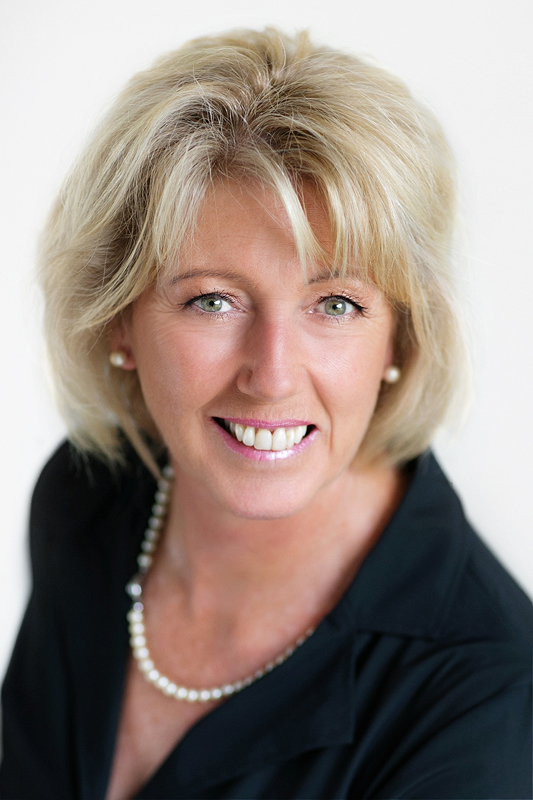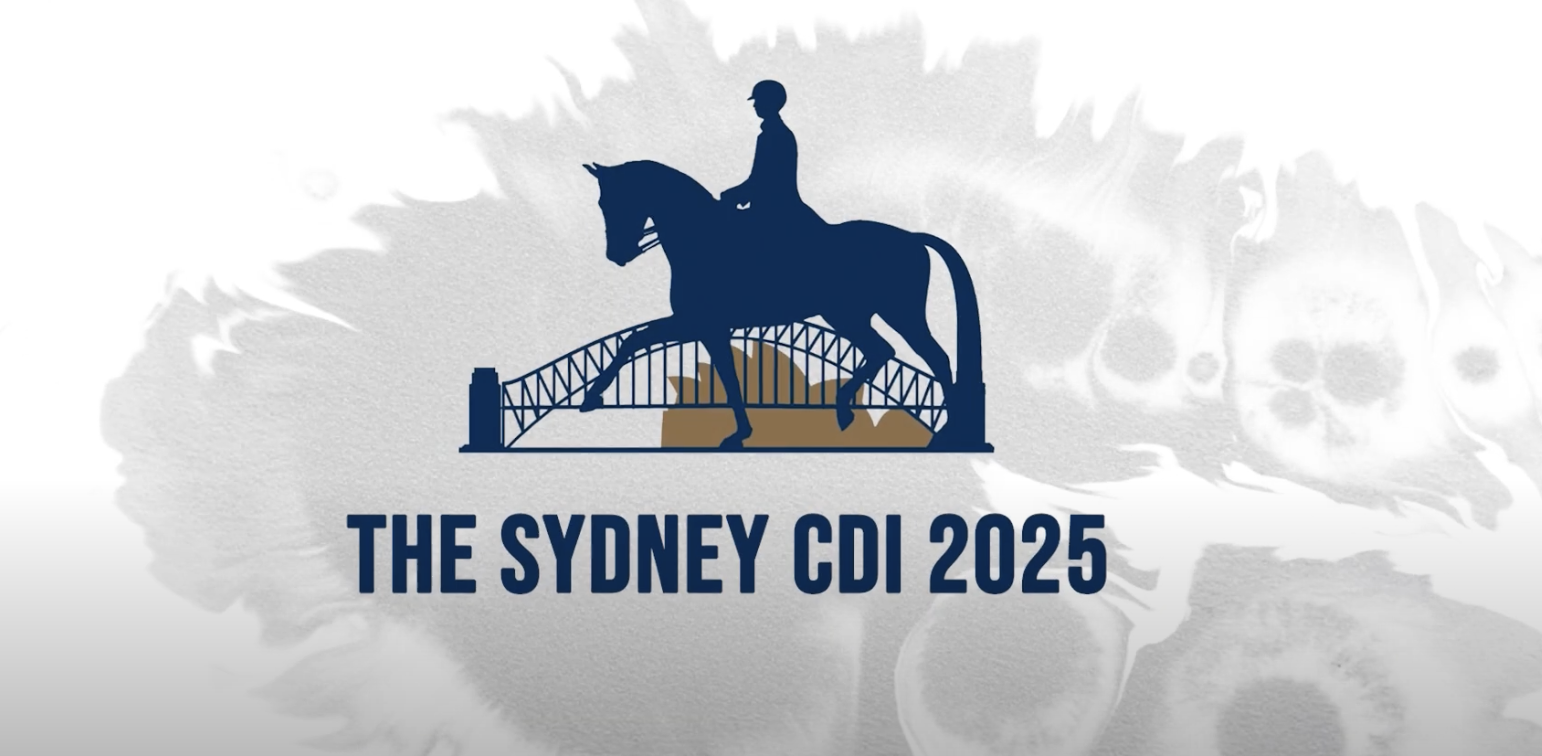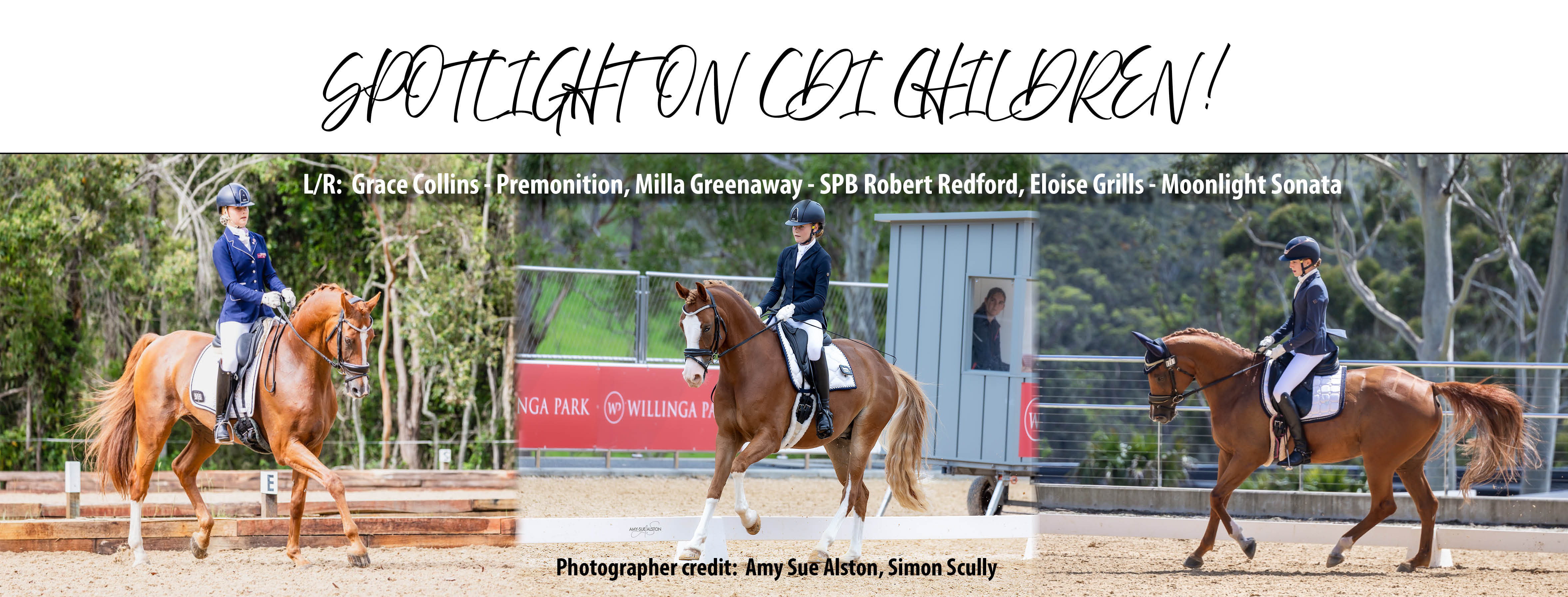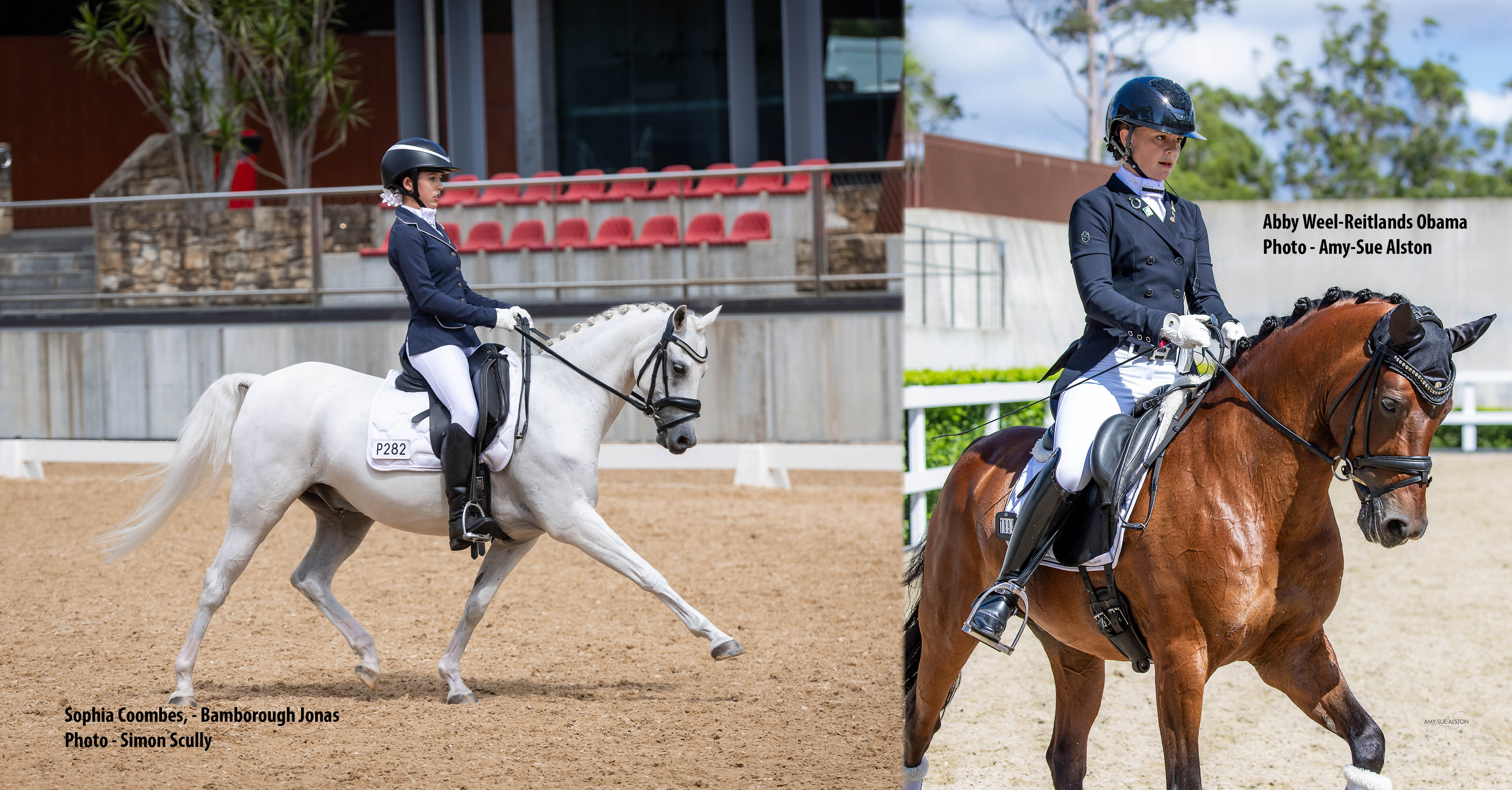2020 Sydney CDI Judges Insight - Linda Warren-Davey (NZL)
Q and A with FEI 4* JUDGE LINDA WARREN-DAVEY
Our Sydney CDI3* 2020 ‘Judges Insight’ series continues as we welcome the first of our newly appointed FEI 4* judges, Linda Warren-Davey. Linda joins us from ‘across the ditch’ as a member of the Ground Jury for this year’s event. In this interview, Linda shares what she will be seeking from competitors, the ‘soft’ life skills that have helped her as a judge and the importance of building the judge/trainer/rider relationship triangle.
Linda’s involvement with dressage spans riding, training and judging over the past 30 years. She has ridden and trained her own horses to FEI level. Linda is passionate about dressage education and is an active NZ Judge Mentor and Educator; holding the Performance and Development role on the Board of Dressage New Zealand. Her recent judging appointments include officiating in Singapore, the Netherlands, Tokyo and Belarus. Linda’s special interest is in the correct training and development of young horses and riders, and fittingly, is qualified as a Young Horse Judge.

Sydney CDI
Congratulations on your recent appointment to FEI4*! There are many competitions seeking 4* judges to attend their events around the world. What is it about the Sydney CDI that makes you want to accept an invite to this event? Thank you – I always feel so honoured when asked to be a member of the Ground Jury at this event. Toni and her team ensure the event is so memorable from the moment you arrive. The professionalism of the event is right up there with the European shows, the venue is equestrian-centric, the paperless scoring is a real bonus, and my scribes are always so friendly, helpful and experienced. And let’s not forget the many wonderful combinations that are a real treat to judge.
What are the most important things you will be looking for from our combinations in higher-level tests at the Sydney CDI? A harmonious combination whose training is along the correct lines, riders who ride with confidence in the arena, and who are well prepared for the level they are competing at.
For riders and grooms, personal fitness and horse health are some of the foremost considerations during training and in preparations for big competitions. How do you train and prepare for big competitions as a judge? I think it’s important to be physically fit, and I do a lot of walking and often use that time to assimilate the FEI test and the theoretical parts of the various movements. The many digital platforms available to us make it easy to keep up-to-date with the level of competition overseas, and as an international judge you are expected to attend regular seminars, and there are many educational courses on the FEI website. On competition days I always stay well hydrated, and keep focussed on the test and the level I am about to judge.
Do you have a favourite test/ movement/combination of movements to judge, and why? I enjoy judging the trot half-pass, as when ridden well, it’s quite beautiful and you can really appreciate and reward the suppleness and elasticity, the harmony and elegance of the movement. The piaffe and passage is another favourite as it shows the strength, the balance, the collection and the specific character of the horse.
We will be using the ‘Spectators Judging’ App (SAP) this year at the Sydney CDI. Do you have any tips for our spectators? Have fun and use your range of marks, lol!
Achieving Balance
A movement has commenced towards mindfulness and personal balance within the Australian dressage community. How have you managed to obtain personal balance between dressage and the rest of your life?My family, friends, my grandchildren, garden, interior design and music are all areas in my life that provide balance.
What is often lost in our dressage focus is that many of our high achievers are multidimensional, reaching success in a number of fields outside the arena. What do you think is your most satisfying achievement outside dressage? I have a successful business in the real estate industry and have recently trained to become a real estate auctioneer. I have enjoyed the challenge of succeeding in a traditionally male dominated domain.
Are there any life skills that you feel have served you to perform well in your judging dressage role? Many of the attributes required throughout my business life have contributed to my judging life – tact, diplomacy, discretion, relationship building, good communication and making considered decisions.
Passion for Young Horse Judging Speciality
Is there a specific area of dressage that you are truly passionate about?
Over eight years ago in Germany I had the opportunity to sit in on an international Young Horse competition, and the whole concept absolutely resonated with me. I had this ‘lightbulb moment’ and was fascinated as I could understand how this concept could be of so much benefit to the development of our young horses in NZ. I could also more clearly see that the correct development of the training scale that was more age related had the potential to create a younger Grand Prix horse; that had a longer future at that level and therefore could continue to develop the strength, the collection and the understanding required to perform on the international stage. Horses were reaching Grand Prix level in NZL, but many were already in their mid-teens. NZL had dabbled with the concept at Nationals when international judges came to judge, but it was still very much in a development phase.
What I like is how the judging methodology differs to judging ‘standard’ tests, in that the paces are judged individually so riders can identify which pace needs more development, the submission mark gives riders feedback on their training of the horse and then a mark for overall perspective... the status of the horse’s current training and how it will bode for the future.
Far more helpful for the development of a young horse, I believe, rather than repetitive training focussing on accuracy and function rather than form. The acceptance of this concept has been slow to accept and adopt in NZ, which I can understand as it is very different to how our sport has been developed in our country over the past 50 to 60 years. Saying that, it took about ten years for the whole concept, I believe, to be fully accepted in Australia, so there is time for us yet!
We have promoted more competitions throughout NZ which are slowly growing in numbers, and we have sponsors and breeders keen to become involved which is very positive.
I and several other NZ judges sat the EA Young Horse exam six years ago and I continued to develop my understanding and judging skills from international judges and by attending international shows in Europe. Once I attained FEI 3* status, the following year I went to Moscow, and sat and passed the International young horse exam, and became the first NZL international YH judge. I look forward to continuing to develop and foster further understanding and acceptance amongst NZL riders and trainers and seeing more of our young horses reach their potential.
Judging Education
What advice do you have for those thinking about or just starting on a dressage judging pathway? Watch as many combinations as you can, practice judge and compare your marks with the scores when they are posted on-line and ask to be mentored by a senior judge for a season. It’s a wonderful sport to be involved in as a judge.
Do you think participation in a basic level of judging education would be of benefit to all members of the equestrian community, even if they do not intend on a judging pathway? Absolutely, as it would assist the equestrian community to understand the philosophy behind judging and would really assist riders and trainers to understand what the judge’s expectations are throughout the levels.
Is there a message you would like to raise with the dressage community? I believe the judge/trainer/rider triangle is an important relationship. It’s so important for riders and their trainers to understand the expectations of the judge and what we are looking to reward and equally important for judges to keep up-to date with current training methods, so we are all on the same page working toward common goals – the wellbeing and welfare of the horses we love and achieving excellence in our knowledge and training for the positive improvement of our sport.
Linda asked us to pass on her delight to be judging at this prestigious competition and wishes all competitors an enjoyable and successful show!
Don’t miss seeing our fabulous judges in action at this year’s Sydney CDI! Tickets for the event have already gone on sale, and seats for the ever-popular Saturday evening Grand Prix Freestyle to Music event and Educational Workshop on Sunday are selling out fast. For more information about the event or to purchase tickets, visit the event website at:www.sydneycdi.com
Tracey Mahony (Media Coordinator, Sydney CDI 2020)
Images: Supplied by Linda Warren-Davey



